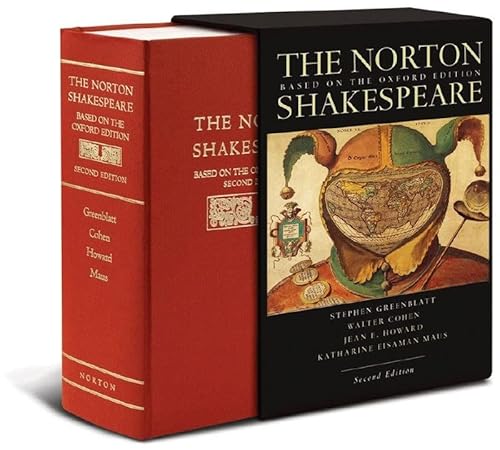Synopsis
The text is based on the Oxford Edition, which brings readers closer to Shakespeare's plays as they were first acted than was ever before possible. This Second Edition introduces new scholarship and editorial features that invite readers afresh to Shakespeare's plays and poems. Stephen Greenblatt's dazzling introduction, updated for this edition, creates a window into the culture of early modern England; Shakespeare's life in the theater; and the businesses of printing, publishing, and textual editing. The works themselves are enhanced with lively introductions, also updated, as well as ample glosses, annotations, a textual note, and new annotated bibliographies and filmographies. Andrew Gurr's essay, "The Shakespearean Stage"; a new timeline; new maps; a glossary of theater and printing terms; contextual documents; and redesigned genealogies provide additional help for readers.
À propos des auteurs
Stephen Greenblatt is Cogan University Professor of the Humanities at Harvard University. He has written extensively on English Renaissance literature and acts as general editor of The Norton Anthology of English Literature and The Norton Shakespeare. He is the author of fourteen books, including The Swerve, winner of the Pulitzer Prize and National Book Award, and Will in the World, a Pulitzer Prize finalist.
Walter Cohen (Ph.D. Berkeley) is Professor of English at the University of Michigan, Ann Arbor, and Professor of Comparative Literature Emeritus at Cornell University, where he received the Clark Distinguished Teaching Award. He is the author of Drama of a Nation: Public Theater in Renaissance England and Spain, as well as numerous journal articles on Renaissance literature, literary criticism, the history of the novel, and world literature. He has recently completed a critical study entitled A History of European Literature: The West and the World from Antiquity to the Present.
Jean E. Howard (Ph.D., Yale) is the George Delacorte Professor in the Humanities at Columbia University. A past president of the Shakespeare Association of America, she is the author of numerous books on Renaissance drama, including Shakespeare’s Art of Orchestration: Stage Technique and Audience Response (1984), The Stage and Social Struggle (1994), Engendering a Nation: A Feminist Account of Shakespeare’s English Histories, with Phyllis Rackin (1997), Theater of a City: The Places of London Comedy 1598–1642 (2007), and Marx and Shakespeare with Crystal Bartolovich (2012). She is at work on a book about the English history play from Shakespeare to Caryl Churchill and another on the invention of Renaissance tragedy.
Katharine Eisaman Maus (Ph.D. Johns Hopkins), The Early Seventeenth Century, is James Branch Cabell Professor of English at the University of Virginia. She is the author of Being and Having in Shakespeare, Inwardness and Theater in the English Renaissance, and Ben Jonson and the Roman Frame of Mind; editor of a volume of Renaissance tragedies; and coeditor of The Norton Shakespeare, English Renaissance Drama: A Norton Anthology, and a collection of criticism on seventeenth-century English poetry. She has been awarded Guggenheim, Leverhulme, NEH, and ACLS fellowships, and the Roland Bainton Prize for Inwardness and Theater.
Les informations fournies dans la section « A propos du livre » peuvent faire référence à une autre édition de ce titre.
